General description
Actins are cytoskeletal proteins that regulate cell motility. Several scaffolding, signaling and actin-binding proteins regulate the interconversions between filamentous F-actins and monomeric G-actins. Cellular actins of various species have very similar immunological and physical properties. Hence, the use of monoclonal antibody to actin provides a specific and useful tool for studying the localization, structure and function of actin proteins. Actin 2 (ACTA2), the smooth muscle actin is encoded on human chromosome 10q23.31.
Mouse monoclonal anti-actin, α-smooth muscle antibody binds to actin from human, mouse, rat, bovine, chicken, frog, goat, guinea pig, rabbit, dog, sheep, and snake.
Monoclonal Anti-α Smooth Muscle Actin (mouse IgG2a isotype) is derived from the hybridoma produced by the fusion of mouse myeloma cells and splenocytes from an immunized mouse. The NH2 terminal synthetic decapeptide of α-smooth muscle actin coupled to keyhole limpet hemocyanin (KLH) was used as the immunogen. The isotype is determined using Sigma ImmunoTypeTM Kit (Sigma Stock No. ISO-1) and by a double diffusion immunoassay using Mouse Monoclonal Antibody Isotyping Reagents (Sigma Stock No. ISO-2).
The antibody (also known as anti-α-Sm-1) is specific for the single isoform of α-smooth muscle actin. It reacts specifically with α-smooth muscle actin in immunoblotting assays and labels smooth muscle cells in frozen or formalin-fixed, paraffin-embedded tissue sections.
Specificity
Monoclonal Anti-α Smooth Muscle Actin is specific for the single isoform α-actin. It reacts specifically with a smooth muscle actin using immunoblotting and indirect immunofluorescent labeling of formalin-fixed, paraffin embedded or frozen tissue sections. The antibody can be used for immunocytochemical localization of the α smooth muscle actin by means of immunoperoxidase, immunofluorescent, ELISA or immunoblot techniques. The antibody reacts with human, mouse, rat, bovine, chicken, frog, goat, guinea pig, rabbit, dog, sheep, and snake.
Immunogen
N-terminal synthetic decapeptide of α-smooth muscle actin.
Application
Immunocytochemistry was performed on smooth muscle cells from bovine aortas using the monoclonal anti-ACTA2 antibody. Cells were first grown on glass cover slips and fixed in 50% acetone/EtOH for 10 minutes at 4 degrees.
Mouse monoclonal anti-actin, α-smooth muscle antibody has been used for western blot assays using whole kidney homogenates in human anaplastic thyroid cancer cells. The product has also been used for immunohistochemical assays using mice tissue sections in liver sections and uterine sections.
Monoclonal Anti-Actin, α-Smooth Muscle antibody has been used in the detection of actin 2 in breast fibroblasts using immunofluorescence staining.
Paraffin embedded sections of rat testis tissue grafts were immunohistochemically stained with mouse monoclonal anti-smooth muscle actin.
IHC analysis of x-gal stained muouse cardiac tissue was performed using the primary antibody, mouse monoclonal anti-smooth muscle actin to identify myofibroblasts.
Biochem/physiol Actions
Actin is one of the most conserved eukaryotic proteins, it is expressed in mammals and birds as six isoforms characterized by electrophoresis and amino acid sequence analysis. Four of the six represent differentiation markers of muscle tissues. Actin isoforms show >90% overall sequence homology, but only 50-60% homology in their 18 NH2-terminal residues. The NH2-terminal region of actin appears to be a major antigenic region, and may be involved in the interaction of actin with other proteins such as myosin. It has been shown that the relative proportion of actin isoforms are different in smooth muscles of different organs and change within the same population of smooth muscle cells during development, pathological situations and different culture conditions.
Mutations in actin 2 is associated with dysfunction of smooth muscles in arteries and is implicated in coronary heart disease. Mutations in ACTA2 contributes to tear and enlargement of aorta in thoracic aortic aneurysms (TAAD).
Physical form
The antibody is provided as ascites fluid containing 15mM sodium azide as a preservative.
Storage and Stability
For continuous use, store at 2-8 °C for up to one month. For extended storage, solution may be frozen in working aliquots. Repeated freezing and thawing is not recommended. If slight turbidity occurs upon prolonged storage, clarify by centrifugation before use.
Other Notes
To view an Actin antibody selection guide, please visit www.sigmaaldrich.com/actin.
Disclaimer
Unless otherwise stated in our catalog or other company documentation accompanying the product(s), our products are intended for research use only and are not to be used for any other purpose, which includes but is not limited to, unauthorized commercial uses, in vitro diagnostic uses, ex vivo or in vivo therapeutic uses or any type of consumption or application to humans or animals.
biological source: mouse. Quality Level: 200. conjugate: unconjugated. antibody form: ascites fluid. antibody product type: primary antibodies. clone: 1A4, monoclonal. mol wt: antigen ~42 . kDa. contains: 15 . mM sodium azide. species reactivity: human, mouse, rat, chicken, frog, canine, guinea pig, rabbit, bovine, goat, sheep, snake. technique(s): immunohistochemistry (formalin-fixed, paraffin-embedded sections): suitable using smooth muscle cells, immunohistochemistry (frozen sections): suitable using smooth muscle cells, indirect immunofluorescence: 1:400 using blood vessels in sections of human appendix, western blot: suitable using smooth muscle cells. isotype: IgG2a. UniProt accession no.: P62736. application(s): research pathology. shipped in: dry ice. storage temp.: −. 20°C. target post-translational modification: unmodified. Gene Information: human ... ACTA2(59)mouse ... Acta2(11475)
rat ... Acta2(81633). Storage Class Code: 10 - Combustible liquids. WGK: WGK 1. Flash Point(F): Not applicable. Flash Point(C): Not applicable.
- UPC:
- 51182706
- Condition:
- New
- Weight:
- 1.00 Ounces
- HazmatClass:
- No
- WeightUOM:
- LB
- MPN:
- A2547-.5ML












